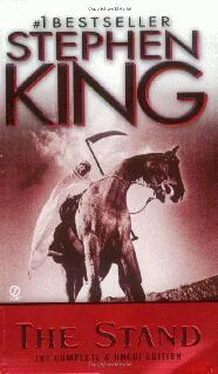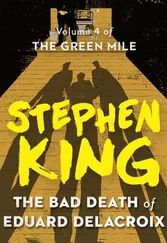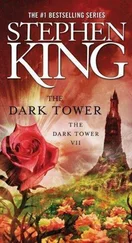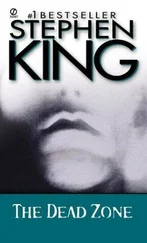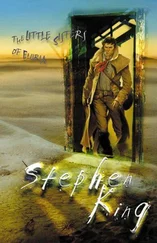It had been so long since Larry had been in Times Square that he expected it to look different somehow, magical. Things would look smaller and yet better there, and he would not feel intimidated by the rank, smelly, and sometimes dangerous vitality of the place the way he had as a child, when he and Buddy Marx or just he alone would scuttle down here to see the 99-cent double features or to stare at the glittering junk in the windows of the shops and arcades and poolhalls.
But it all looked just the same—more than it should have because some things really had changed. When you came up the stairs from the subway, the newsstand that had been on the corner as you came out was gone. Half a block down, where there had been a penny arcade full of flashing lights and bells and dangerous-looking young men with cigarettes dangling from the corners of their mouths as they played the Gottlieb Desert Isle or Space Race, where that had been there was now an Orange Julius with a flock of young blacks standing in front of it, their lower bodies moving gently as if somewhere jive played on and on, jive that only black ears could hear. There were more massage parlors and X-rated movies.
Still, it was much the same, and this made him sad. In a way the only real difference made things seem worse: he felt like a tourist here now. But maybe even native New Yorkers felt like tourists in the Square, dwarfed, wanting to look up and read the electronic headlines as they marched around and around up there. He couldn’t tell; he had forgotten what it was like to be a part of New York. He had no particular urge to relearn.
His mother hadn’t gone to work that morning. She’d been fighting a cold for the last couple of days and had gotten up early this morning with a fever. He had heard her from the narrow, safe bed in his old room, banging around out in the kitchen, sneezing and saying “Shit!” under her breath, getting ready for breakfast. The sound of the TV being turned on, then the news on the “Today” program. An attempted coup in India. A power station blown up in Wyoming. The Supreme Court was expected to hand down a landmark decision having to do with gay rights.
By the time Larry came out into the kitchen, buttoning his shirt, the news was over and Gene Shalitt was interviewing a man with a bald head. The man with the bald head was showing a number of small animals he had hand-blown. Glassblowing, he said, had been his hobby for forty years, and his book would be published by Random House. Then he sneezed. “Excuse you,” Gene Shalitt said, and chuckled.
“You want em fried or scrambled?” Alice Underwood asked. She was in her bathrobe.
“Scrambled,” Larry said, knowing it would do no good to protest the eggs. In Alice’s view, it wasn’t breakfast without eggs (which she called “crackleberries” when she was in a good humor). They had protein and nutrition. Her idea of nutrition was vague but all-encompassing. She kept a list of nutritious items in her head, Larry knew, as well as their opposite numbers—Jujubes, pickles, Slim Jims, the slice of pink bubble gum that came with baseball cards, and oh dear God, so many others.
He sat down and watched her make the eggs, pouring them into the same old black skillet, stirring them with the same wife whisk that she had used to stir his eggs when he had been going to the first grade at PS 162.
She pulled her hankie out of her bathrobe pocket, coughed into it, sneezed into it, and muttered “Shit!” indistinctly into it before putting it back.
“Day off, Mom?”
“I called in sick. This cold wants to break me. I hate to call in sick on Fridays, so many do, but I’ve got to get off my feet. I’m running a fever. Swollen glands, too.”
“Did you call the doctor?”
“When I was a charming maid, doctors made housecalls,” she said. “Now if you’re sick, you have to go to the hospital emergency room. That, or spend the day waiting for some quack to see you in one of those places where they’re supposed to have—ha-ha—walk-in medical care. Walk in and get ready to collect your Medicare, that’s what I think. Those places are worse than the Green Stamp Redemption Center a week before Christmas. I’ll stay home and take aspirin, and by tomorrow this time I’ll be on the downhill side of it.”
He stayed most of the morning, trying to help out. He lugged the TV in by her bed, the cords standing out heroically on his arms (“You’re going to give yourself a hernia so I can watch ‘Let’s Make a Deal,’” she sniffed), brought her juice and an old bottle of NyQuil for her stuffiness, and ran down to the market to get her a couple of paperbacks.
After that there wasn’t much for them to do except get on each other’s nerves. She marveled how much poorer the TV reception was in the bedroom and he had to bite back an acid comment to the effect that poor reception was better than no reception at all. Finally he said he might go out and see some of the city.
“That’s a good idea,” she said with obvious relief. “I’m going to take a nap. You’re a good boy, Larry.”
So he had gone down the narrow stairs (the elevator was still broken) and onto the street, feeling guilty relief. The day was his, and he still had some cash in his pocket.
But now, in Times Square, he didn’t feel so cheerful. He wandered along, his wallet long since transferred to a front pocket. He paused in front of a discount record store, transfixed by the sound of his own voice coming from the battered overhead speakers. The bridge verse.
I didn’t come to ask you to stay all night
Or to find out if you’ve seen the light
I didn’t come to make a fuss or pick a fight
I just want you to tell me if you think you can
Baby, can you dig your man?
Dig him, baby—
Baby, can you dig your man?
That’s me, he thought, looking vacantly in at the albums, but today the sound depressed him. Worse, it made him homesick. He didn’t want to be here under this gray washtub sky, smelling New York exhaust, one hand constantly playing pocket pool with his wallet to make sure it was still there. New York, thy name is paranoia. Suddenly where he wanted to be was in a West Coast recording studio, making a new album.
Larry quickened his step and turned in at an arcade. Bells and buzzers jangled in his ears; there was the amplified, ripping growl of a Deathrace 2000 game, complete with the unearthly, electronic screams of the dying pedestrians. Neat game, Larry thought, soon to be followed by Dachau 2000. They’ll love that one. He went to the change booth and got ten dollars in quarters. There was a working phone kiosk next to the Beef’n Brew across the street and he direct-dialed Jane’s Place from memory. Jane’s was a poker parlor where Wayne Stukey sometimes hung out.
Larry plugged quarters into the slot until his hand ached, and the phone began to ring three thousand miles away.
A female voice said, “Jane’s. We’re open.”
“To anything?” he asked, low and sexy.
“Listen, wise guy, this isn’t… hey, is this Larry?”
“Yeah, it’s me. Hi, Arlene.”
“Where are you? Nobody’s seen you, Larry.”
“Well, I’m on the East Coast,” he said cautiously. “Somebody told me there were bloodsuckers on me and I ought to get out of the pool until they dropped off.”
“Something about a big party?”
“Yeah.”
“I heard about that ,” she said. “Big spender.”
“Is Wayne around, Arlene?”
“You mean Wayne Stukey?”
“I don’t mean John Wayne—he’s dead.”
“You mean you haven’t heard?”
“What would I hear? I’m on the other coast. Hey, he’s okay, isn’t he?”
“He’s in the hospital with this flu bug. Captain Trips, they’re calling it out here. Not that it’s any laughing matter. A lot of people have died with it, they say. People are scared, staying in. We’ve got six empty tables, and you know Jane’s never has empty tables.”
Читать дальше
